Asus ZenBook 14 Air Review: Empowered by Core i7-258V, A Powerful Performance in a Compact Body
![]() 09/25 2024
09/25 2024
![]() 528
528
With the development of technology, consumers are increasingly paying attention to the portability and performance of laptops. Recently, Intel unveiled its new Core i7-258V processor from the Core Ultra 200V series at the pre-IFA 2024 exhibition. Featuring an 8-core (4P+4E) 8-thread design equipped with an Xe2 graphics card, the processor significantly improves overall performance, energy efficiency, and NPU capabilities, attracting widespread attention. Today, we'll delve into the Asus ZenBook 14 Air, one of the first laptops to be powered by the Core i7-258V, exploring its unique design, performance, battery life, and more.
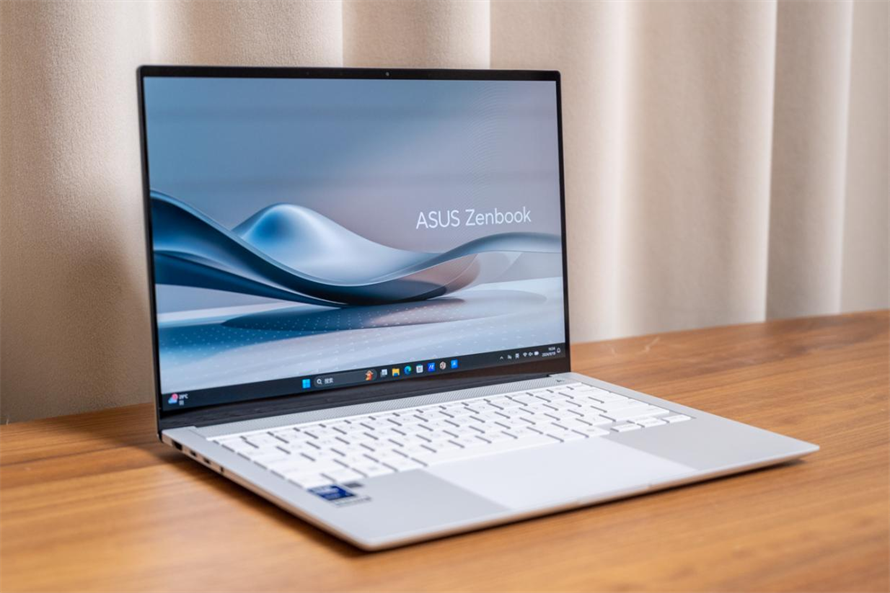
Design:
Before discussing the processor's performance, let's first take a look at the laptop's design. The Asus ZenBook 14 Air continues the iconic ZenBook aesthetic, crafted with a CNC-machined body. The clean lines on the A-side harmoniously blend with the 'A' logo, exuding a premium feel. Notably, the A-side is made of high-tech ceramic aluminum, not only offering exceptional texture but also effectively resisting fingerprints and providing a comfortable touch.
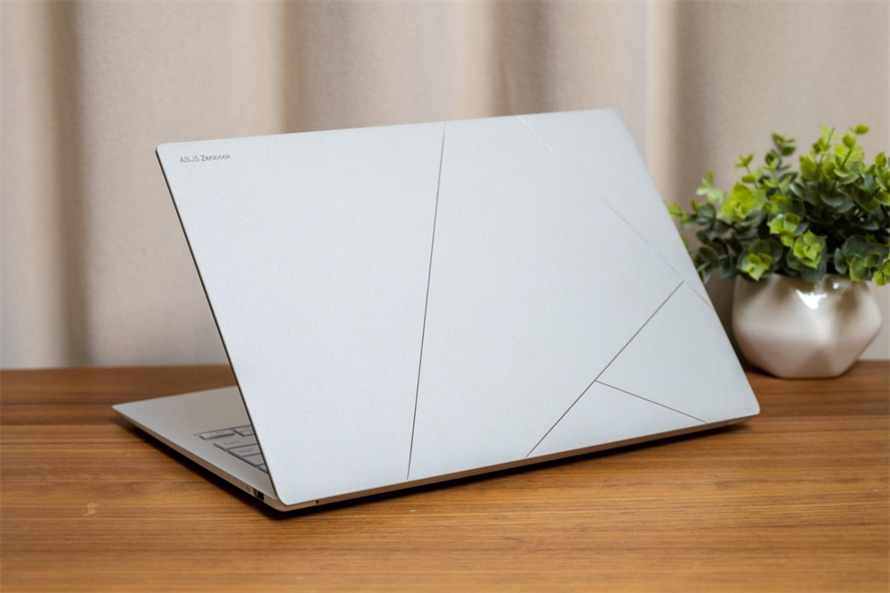
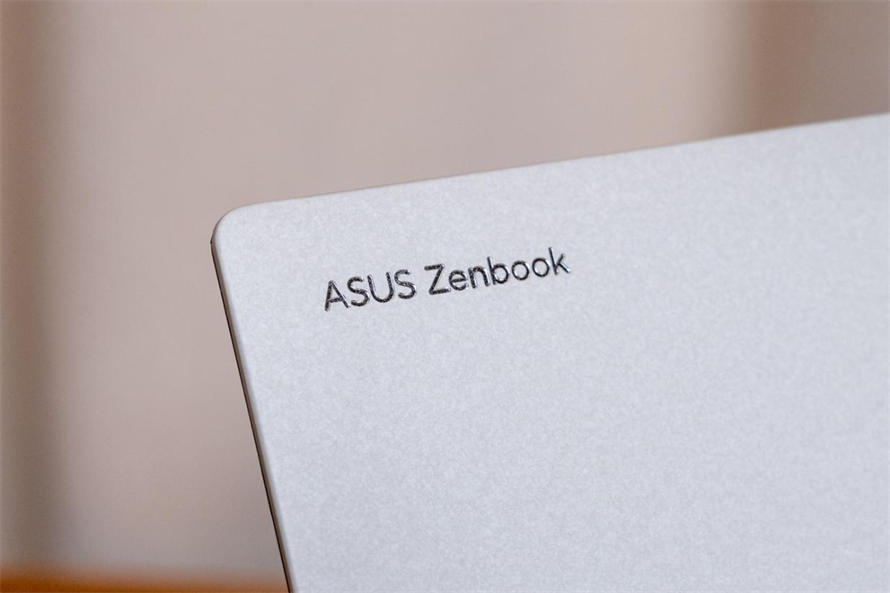
On the C-side, above the keyboard, tiny geometric vents have been meticulously designed. These vents significantly enhance airflow within the body, optimizing cooling performance and ensuring stable performance even during prolonged use.
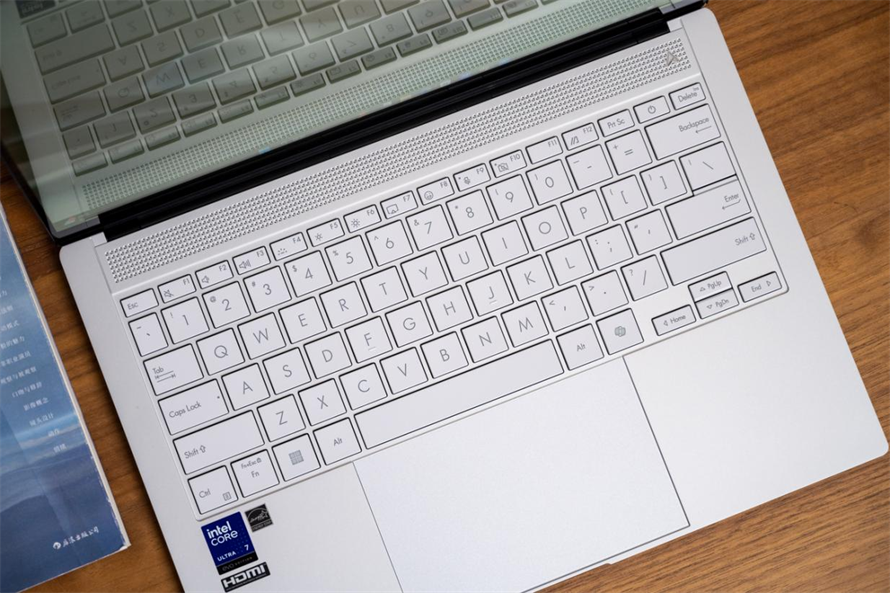
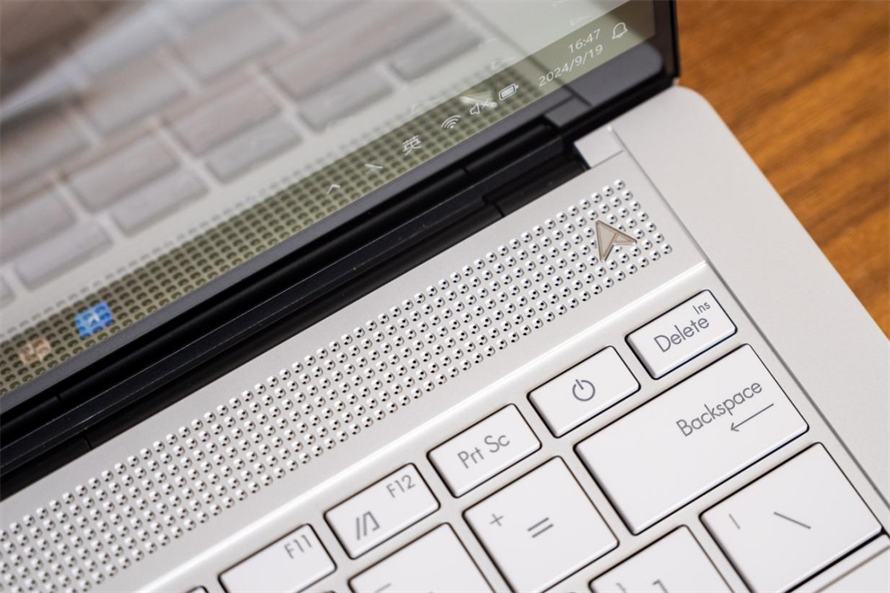
The power button is strategically placed in the top-right corner of the keyboard, requiring a firmer press to prevent accidental activations, enhancing the user experience. The keyboard supports three levels of backlighting, making it convenient for typing in low-light environments. Its tactile feedback is clear, with a moderate key travel, suitable for extended typing sessions.
In terms of ports, the left side features an HDMI 2.1 TMDS, two Thunderbolt 4 ports, and a headphone jack, while the right side hosts a USB-A port. This port layout is reasonable, catering to daily connections for peripherals, displays, and high-speed file transfers. For additional connectivity needs, a docking station is recommended.
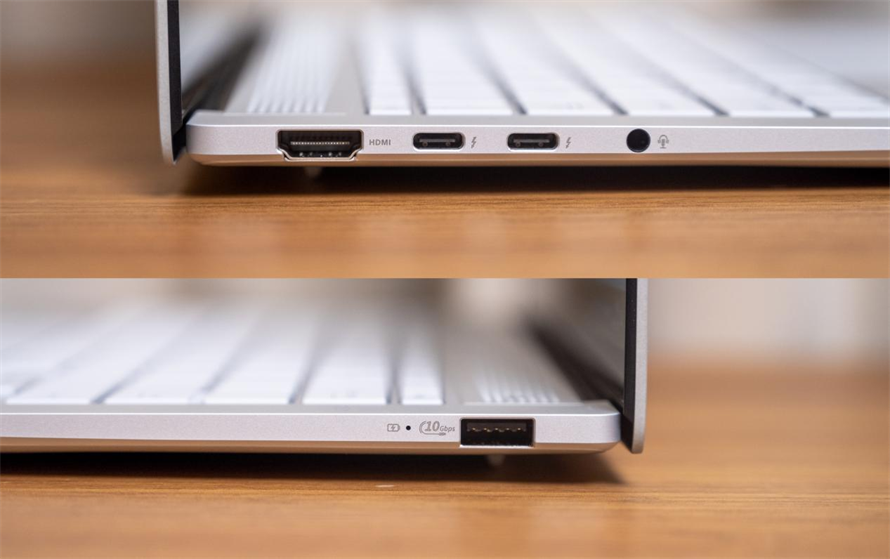
Asus ZenBook laptops are renowned for their display quality, and the ZenBook 14 Air is no exception. It boasts a 14-inch OLED panel with a 2.8K resolution and 120Hz refresh rate, delivering both crisp visuals and a smooth viewing experience. Remarkably, the screen's peak brightness reaches 600 nits, ensuring clear visibility even in outdoor environments.
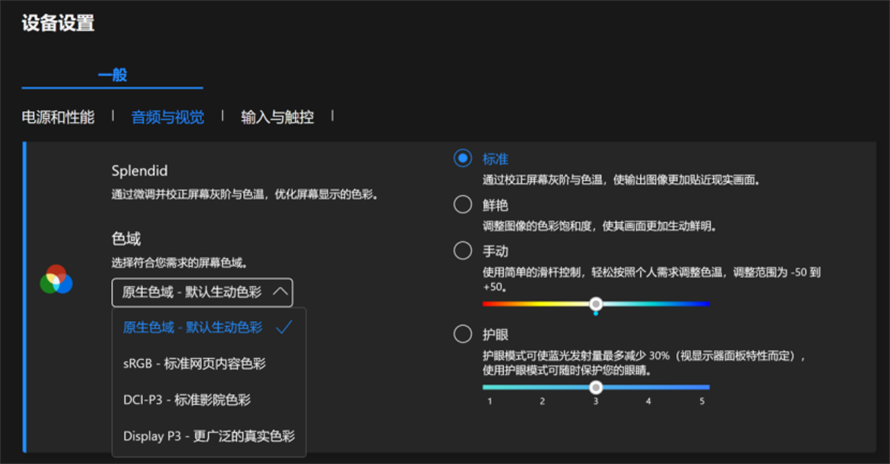
The display supports four professional color gamuts, catering to diverse scenarios like graphic design and movie watching. It's also TÜV Rheinland-certified for low blue light emission, features DC dimming, and Dolby Vision, safeguarding eye health while offering an immersive visual experience.
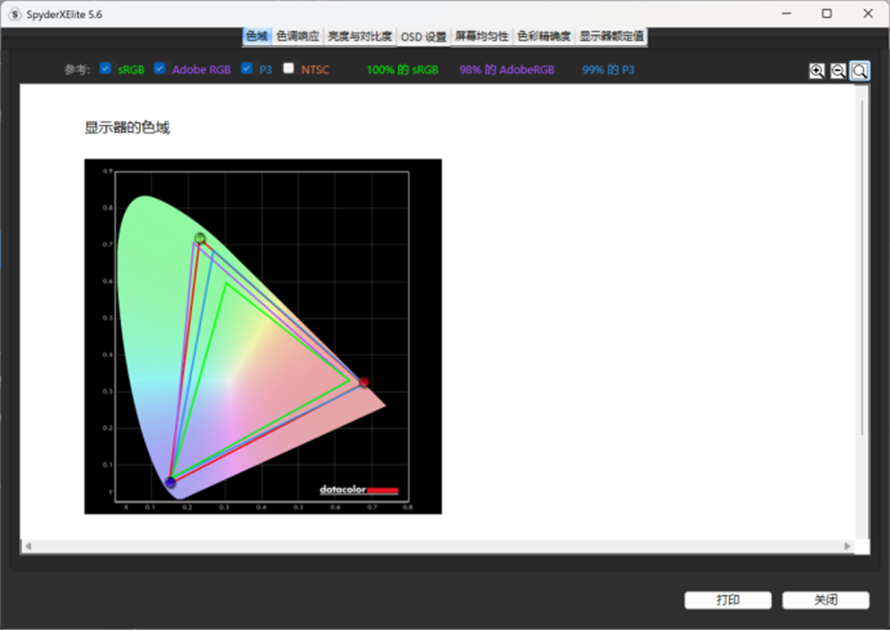
To demonstrate the screen's capabilities, we tested its color gamut and accuracy using Spyder X Elite. Under the default native color gamut, the display covers 100% sRGB, 98% AdobeRGB, and 99% P3, satisfying even the most demanding users.
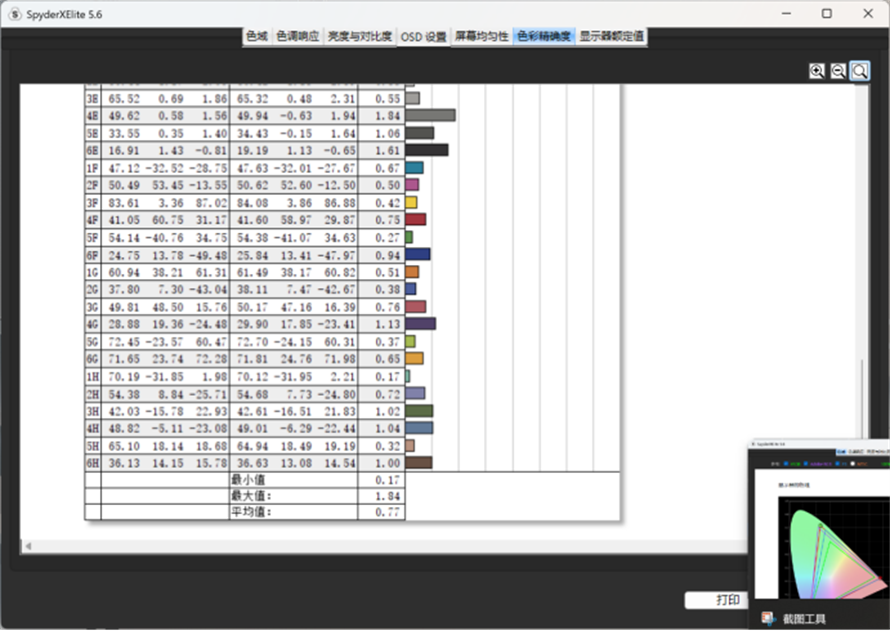
Regarding color accuracy, the maximum deviation is a mere 1.84, with an average of just 0.77. This exceptional performance makes the ZenBook 14 Air suitable for design and illustration work requiring precise color representation.
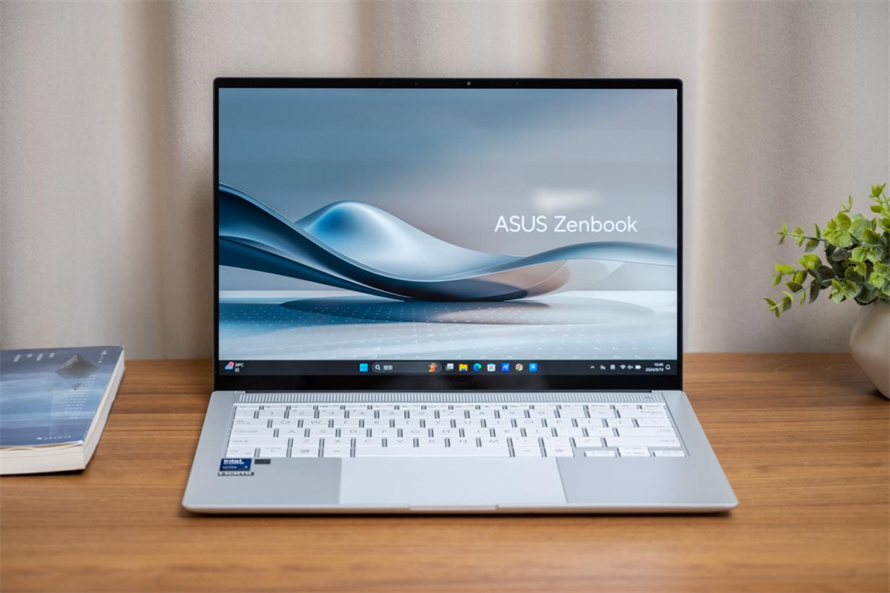
Portability-wise, the ZenBook 14 Air maintains a high standard, weighing around 1.15kg and measuring just 1.1cm thick, ensuring exceptional portability. Its USB-C port supports PD charging, allowing for lightweight travel with a high-power portable charger, reducing backpack weight significantly.
Performance Testing:
Before delving into performance tests, let's introduce our new friend, the Core i7-258V. It boasts four Lion Cove performance cores and four Skymont efficiency cores, with P-cores reaching 4.8GHz (15% IPC boost) for swift single-threaded tasks and E-cores clocking up to 3.7GHz (68% IPC boost) for powerful multi-threaded performance. Backed by 12MB L3 cache and 32GB dual-channel LPDDR5X 8533MT/s RAM, it ensures swift data processing.
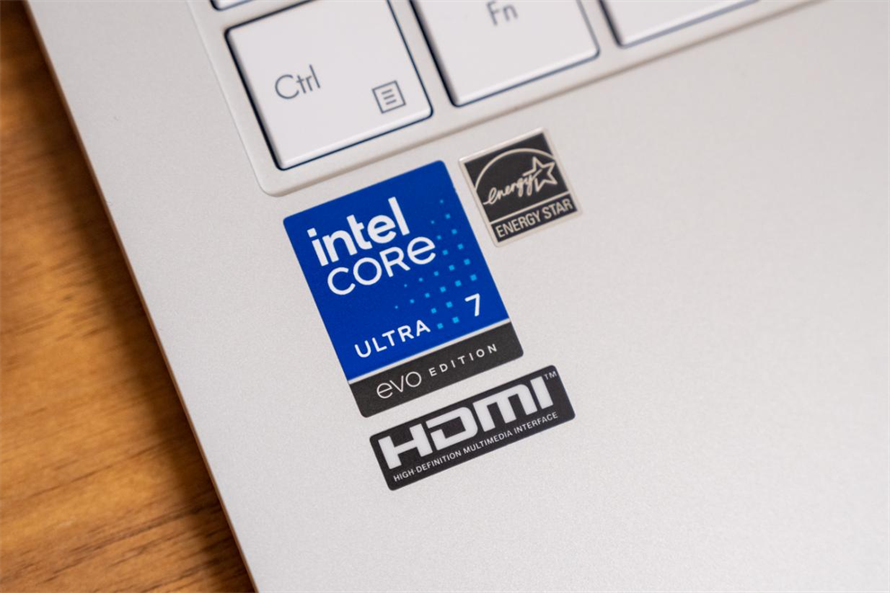
Without further ado, let's dive into the tests.
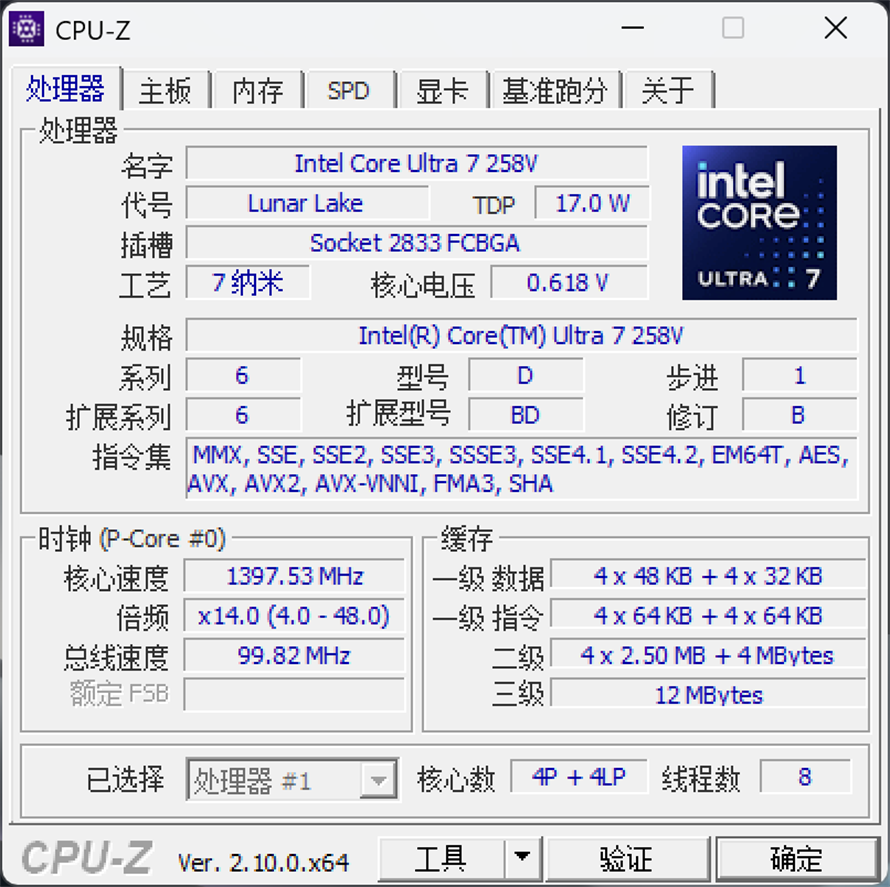

Cinebench R23 scores 1900 points in single-core and 10,573 in multi-core tests.
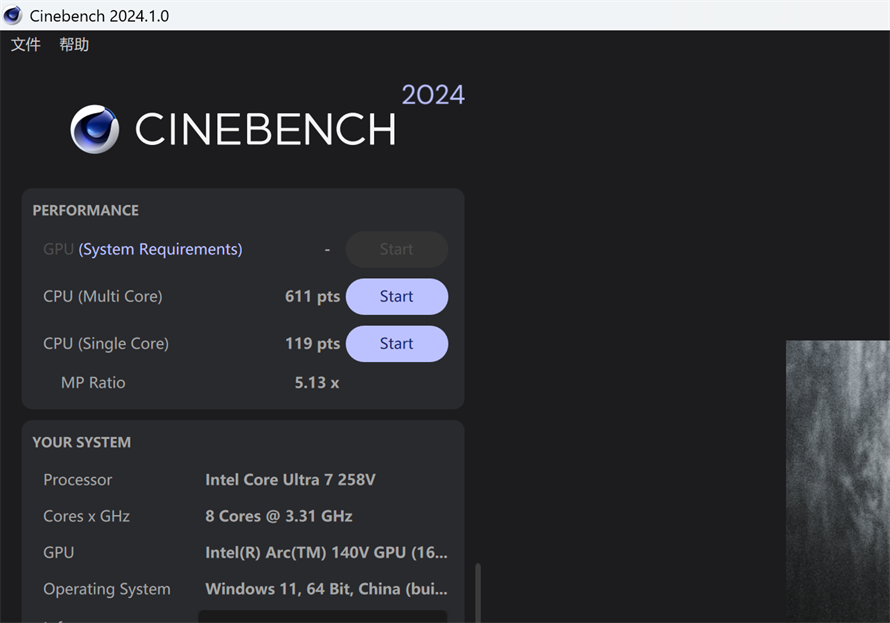
Cinebench 2024 records 119 points in single-core and 611 in multi-core tests.
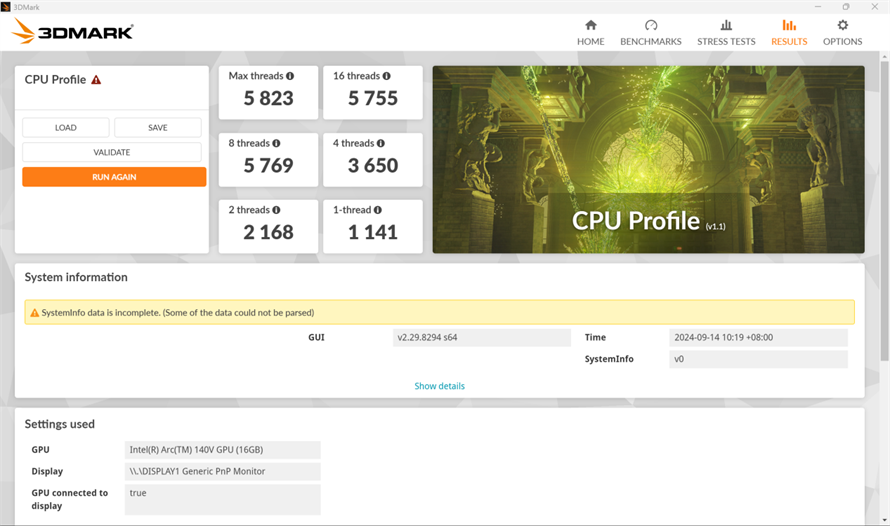
3DMark's CPU Profile yields 1141 points in single-thread and 5823 in maximum threads.
In rendering performance, the V-Ray Benchmark scores 9805 points.
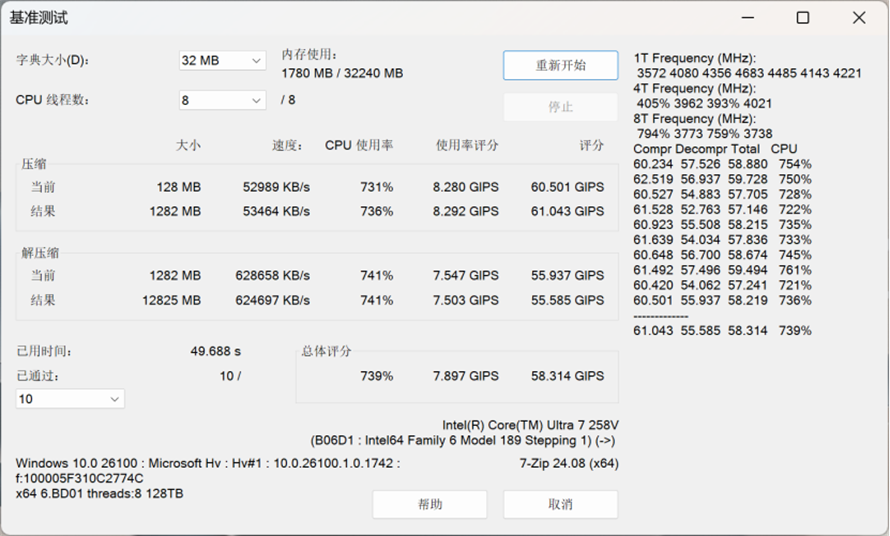
The 7-zip compression/decompression test achieves an overall score of 58.314 GIPS.
Notably, the Core Ultra 200V series integrates LPDDR5X 8533MT/s memory into the processor, significantly reducing memory access latency and enhancing overall performance while conserving board space.
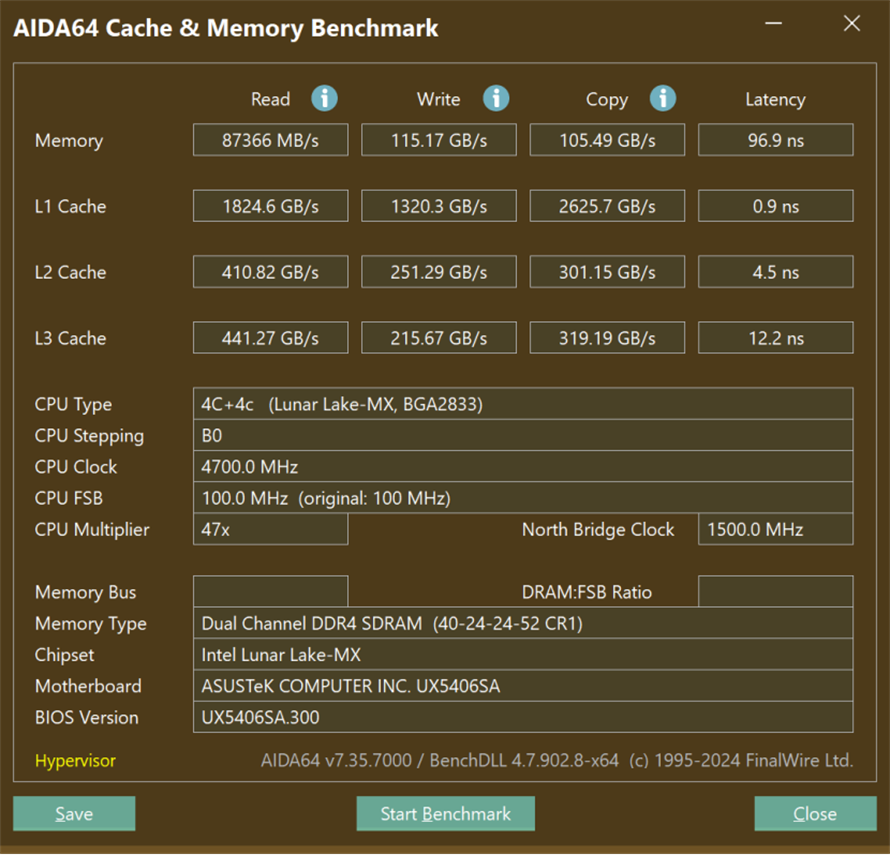
AIDA 64 memory tests reveal read speeds of 87,366MB/s, write speeds of 115.17GB/s, and a latency of 96.9ns.
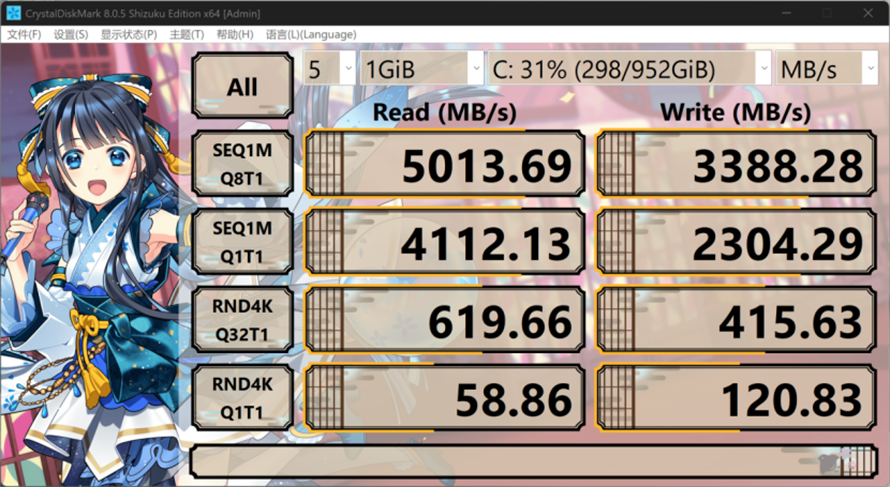
The ZenBook 14 Air is equipped with a 1TB PCIe 4.0 SSD from Western Digital (model SN560). CrystalDiskMark tests show sequential read speeds of 5013.69MB/s and write speeds of 3388.28MB/s.
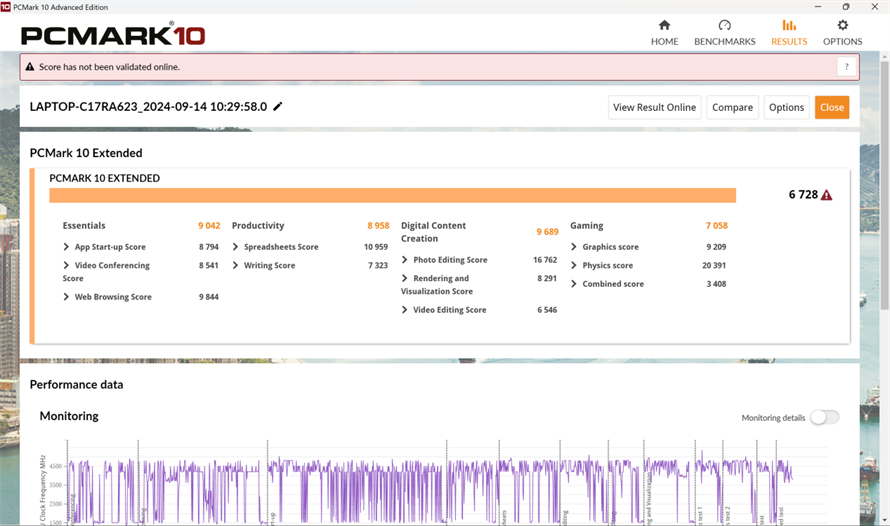
PCMark 10 Extended scores 6728 points, with Essentials at 9042, Productivity at 8958, Content Creation at 9689, and Gaming at 7058.
Graphics-wise, the Core i7-258V's integrated GPU is the Intel Arc 140V, featuring 8 Xe2 cores, 64 vector engines, 8MB cache, and a clock speed of 1.95GHz.
3DMark Graphics Tests:
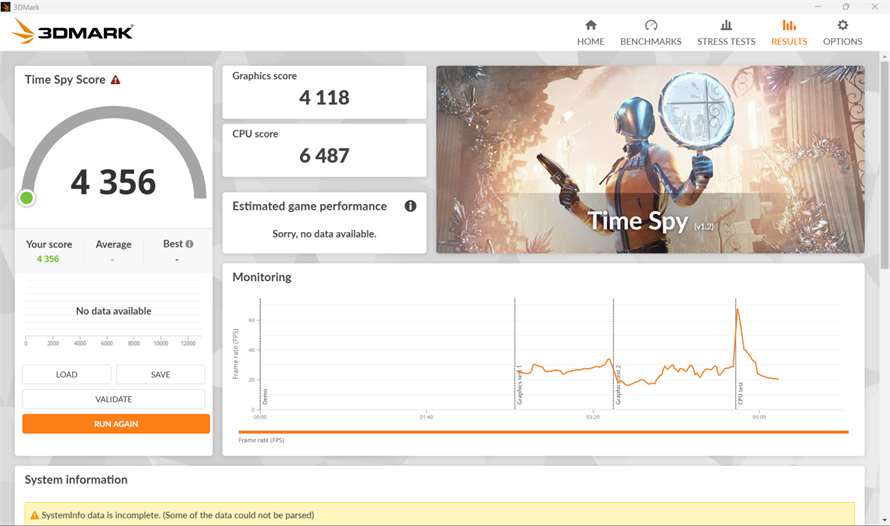
Time Spy scores 4356 overall, with a Graphics score of 4118 and a CPU score of 6487.
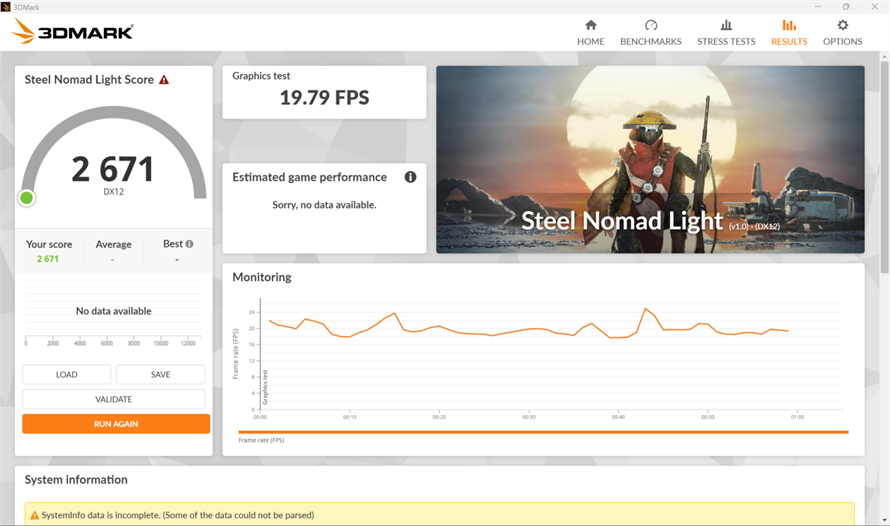
Steel Nomad Light DX12 yields a score of 2671, with a GPU test score of 19.79fps.
We briefly tested 'Tomb Raider: Shadow of the Tomb Raider' at 1080p resolution with the lowest settings, achieving an average framerate of 65fps.
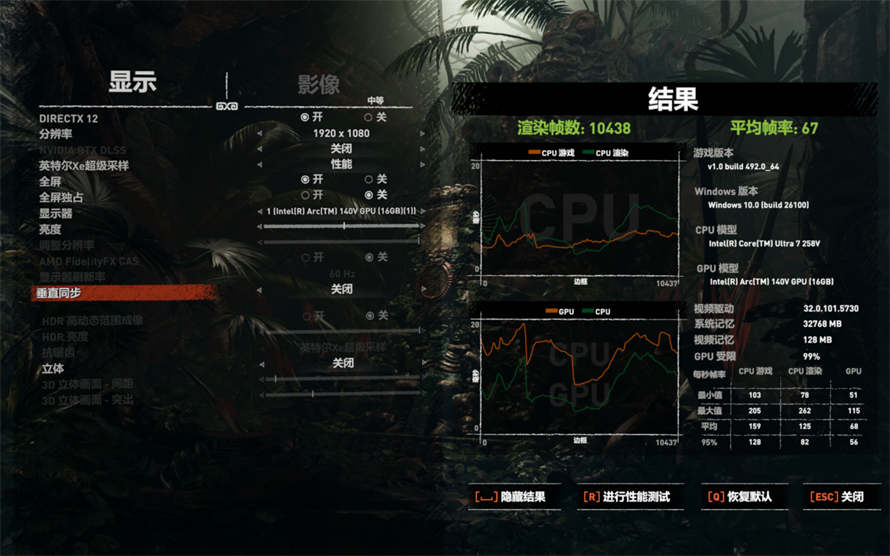
With DirectX 12 and Xess performance enabled, the average framerate soars to 96fps on the lowest settings and remains at 67fps on medium settings, ensuring a smooth gaming experience.
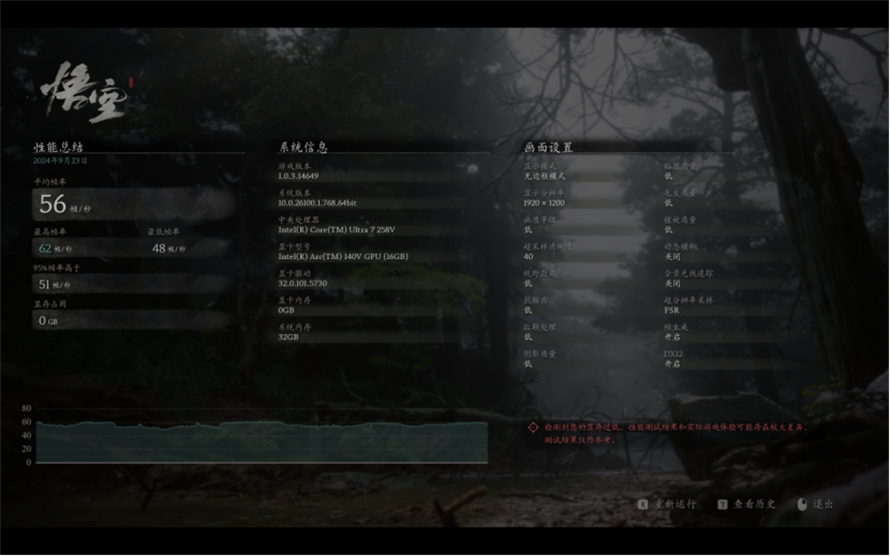
Using the 'Black Myth: Wukong' benchmark tool at 1920x1200 resolution with recommended low settings, supersampling clarity set to 40, FSR, and frame generation enabled, we achieved a score of 56fps, exceeding expectations.
The Core i7-258V's integrated GPU demonstrates remarkable gaming prowess, allowing for occasional 3A title sessions with compromised graphics and framerates.
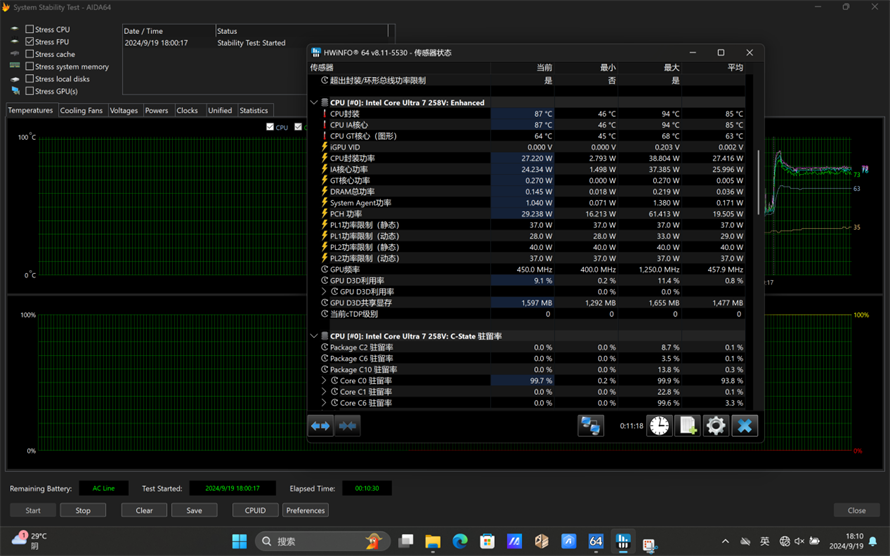
During an AIDA64 CPU stress test, the processor peaked at 38W before stabilizing at around 28W, delivering consistent performance. For such a sleek laptop, this performance balance meets daily needs while managing power consumption and extending battery life.
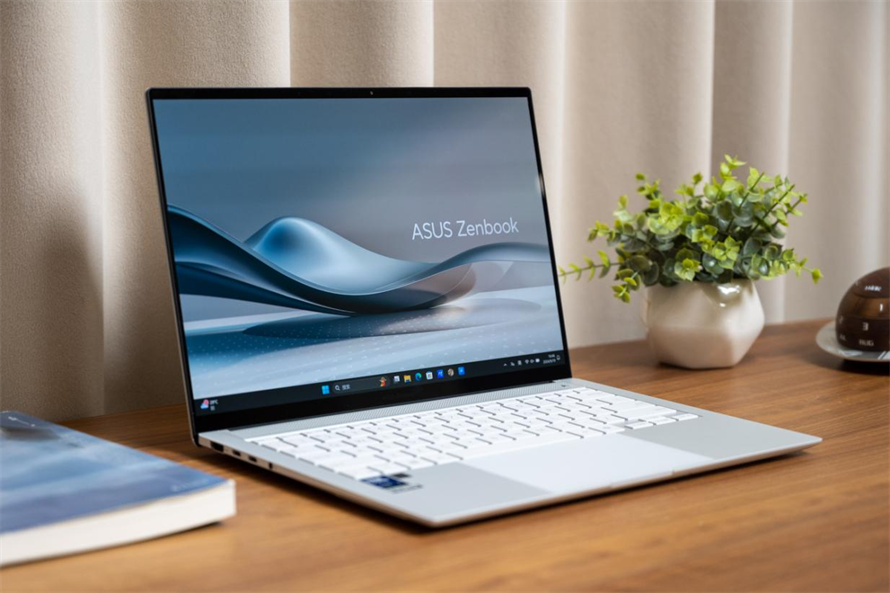
In AI computing, the Core i7-258V's NPU boasts up to 47 TOPS, with the combined CPU+GPU+NPU capacity reaching 115 TOPS, surpassing competitors. One might wonder, what AI functions can we utilize on such a portable device?
In fact, as major software vendors actively integrate AI into their software, we can now leverage AI to enhance efficiency in many productive software, such as Adobe series, including video editing apps like CapCut, helping us complete tasks with better quality and faster speed.
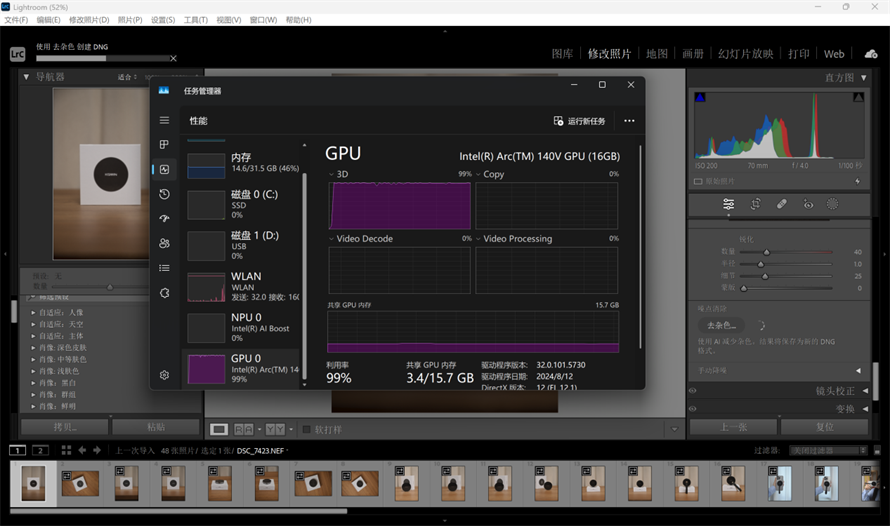
Taking myself as an example, when traveling for business trips and attending product launches, I inevitably take numerous photos. When using Adobe Lightroom for post-processing, AI noise reduction is almost always a step I take. When using AI noise reduction on the ZenBook 14 Air, the GPU of the Intel Core i7-1360P (codenamed Ultra 7 258V) runs at full capacity, significantly boosting the speed of AI noise reduction. With the ZenBook 14 Air, even after a product launch where I've taken nearly a hundred photos, I can salvage many otherwise unusable shots during post-processing, saving considerable time.
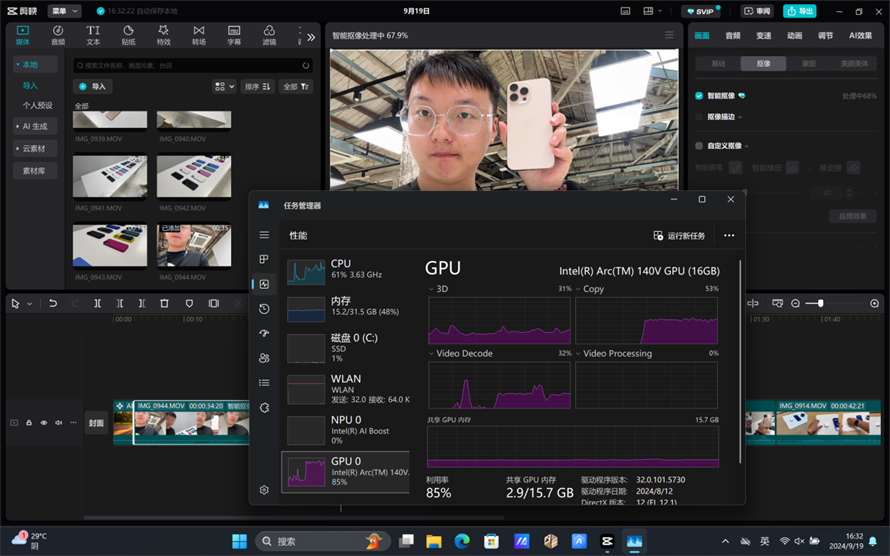
Given Intel processors' leadership in video codec, I believe many people, like me, directly use Intel ultrabooks for simple video editing tasks.
Using the ASUS ZenBook 14 Air for smooth preview of 4K video footage is a given. In apps like CapCut, AI is one of the most common terms seen in the user interface. When using AI portrait matting in CapCut, it's time for the integrated graphics to shine, significantly speeding up the process and boosting video editing efficiency.

The ZenBook 14 Air also comes with StoryCube, an intelligent multimedia management software. You can easily import photos, videos, and audio from iCloud or OneDrive into the software. Leveraging AI, the software categorizes people and scenes in your photo albums. You can also search for photos, videos, and audio by tags such as time and location, making it much more convenient.
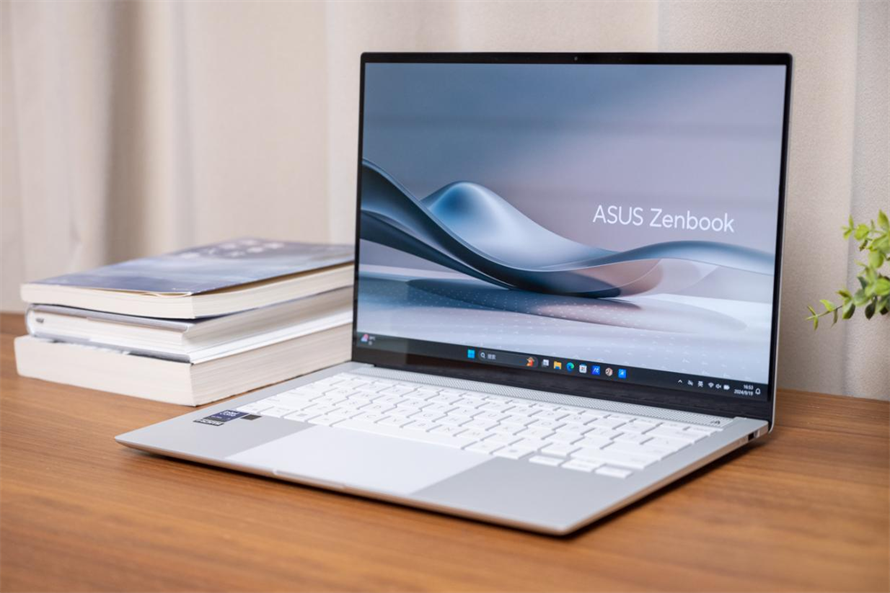
More and more PC software now incorporates AI functionality. Some rely on cloud computing power, which, while not demanding high device performance, may raise concerns about privacy, security, and network latency. On the other hand, local AI computing power does not rely on cloud services, enabling instant response, excelling in scenarios requiring high real-time performance, and better safeguarding user data privacy. While it's challenging to determine a definitive choice, opting for a laptop like the ZenBook 14 Air, equipped with ample local computing power, is undoubtedly a solid decision.
Those who have used Core i7-12xxU series laptops will likely attest to their impressive battery life. With the enhanced NPU performance of the Core i7-13xxU (Ultra 200V series) processors, power consumption is further reduced in various application scenarios, resulting in outstanding battery life.
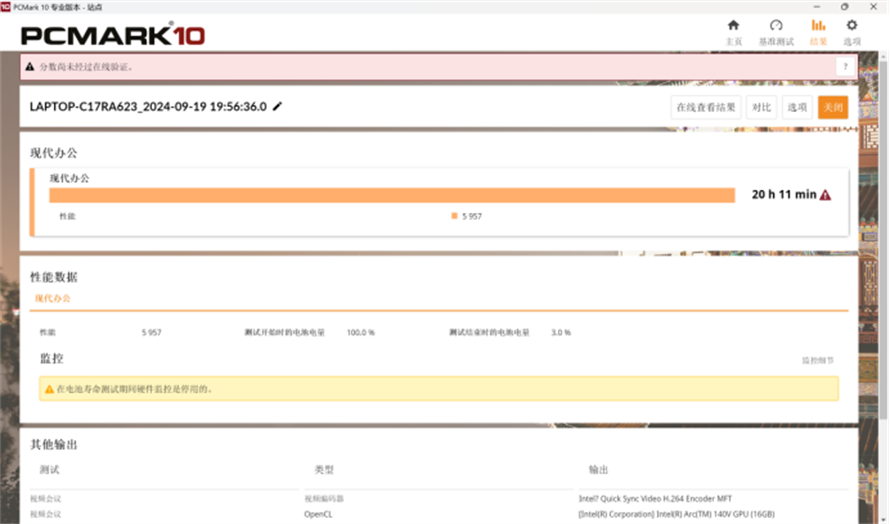
The ZenBook 14 Air is equipped with a 72Wh battery, achieving an astonishing battery life of 20 hours and 11 minutes in the PCMark 10 Modern Office battery life test. This battery life is undoubtedly a boon for office workers and university students. Even if you're traveling all day without access to a charger or using your laptop in a library for an entire day, you won't have to worry about running out of battery, allowing you to work, study, or entertain with peace of mind.
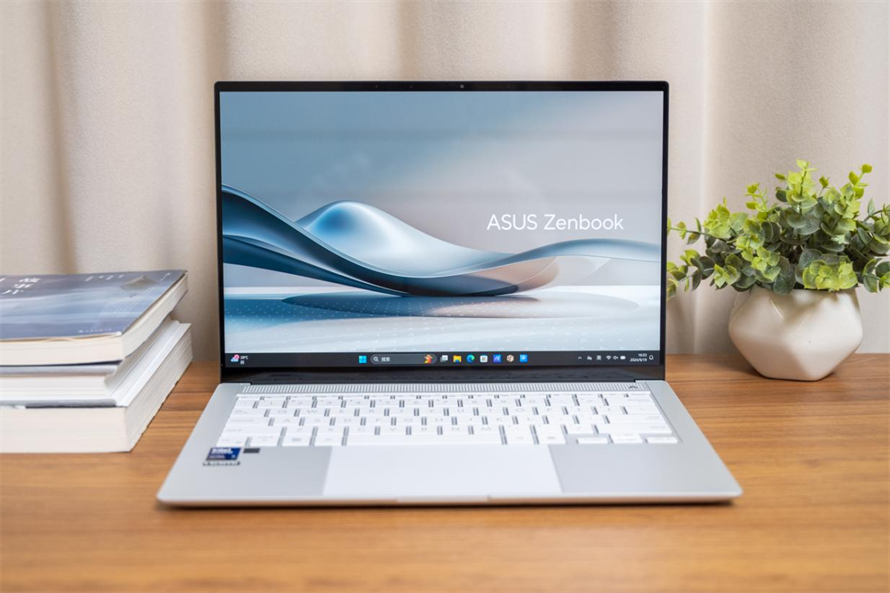
Conclusion:
The ZenBook 14 Air showcases excellent industrial design, with a sleek appearance and a lightweight body. The Core i7-1360P (Ultra 7 258V) processor, with its significant enhancements in integrated graphics and AI computing power, imbues this compact and elegant laptop with formidable internal performance and remarkable battery life.
In today's rapidly evolving AI landscape, if you're seeking an ultra-slim laptop that stays ahead of the AI curve and doesn't lag behind the times, the ASUS ZenBook 14 Air equipped with the Core i7-1360P processor is an excellent choice. It not only meets users' needs for performance, portability, and battery life but also delivers an intelligent experience, efficiently assisting users in completing various tasks.








